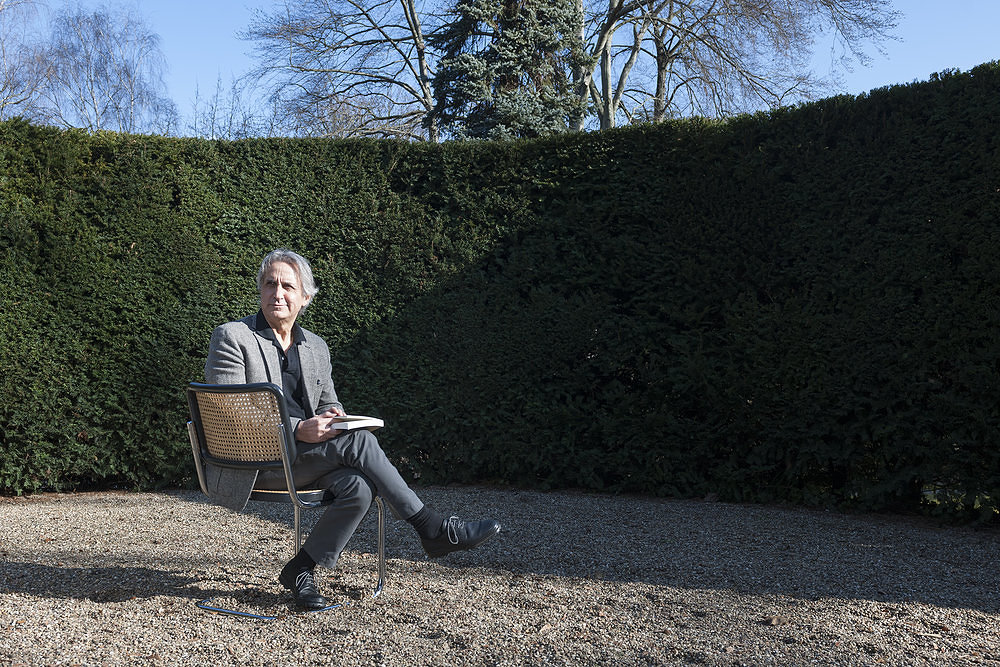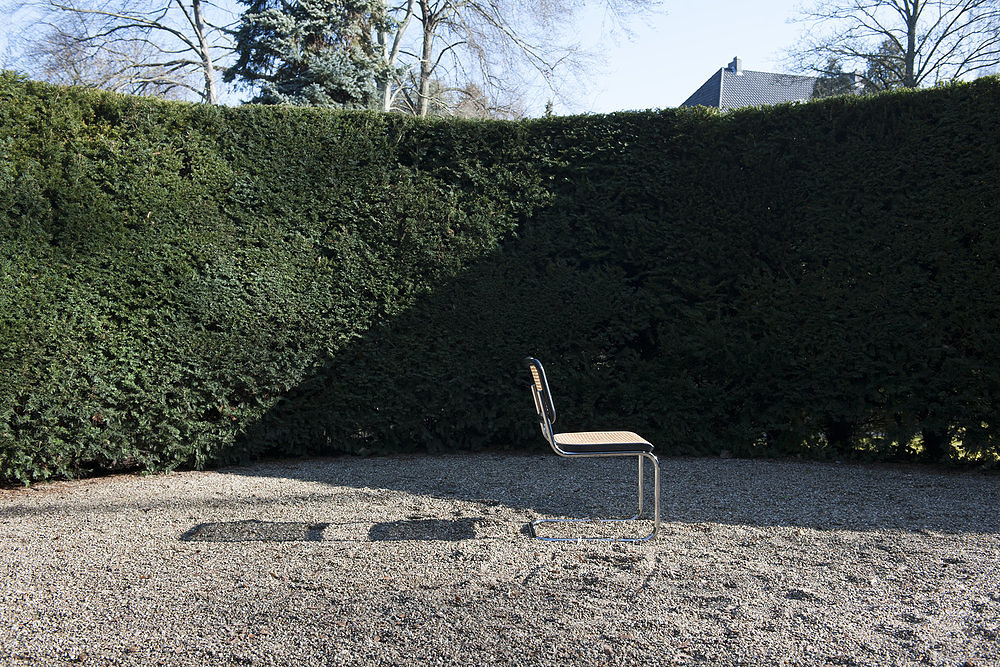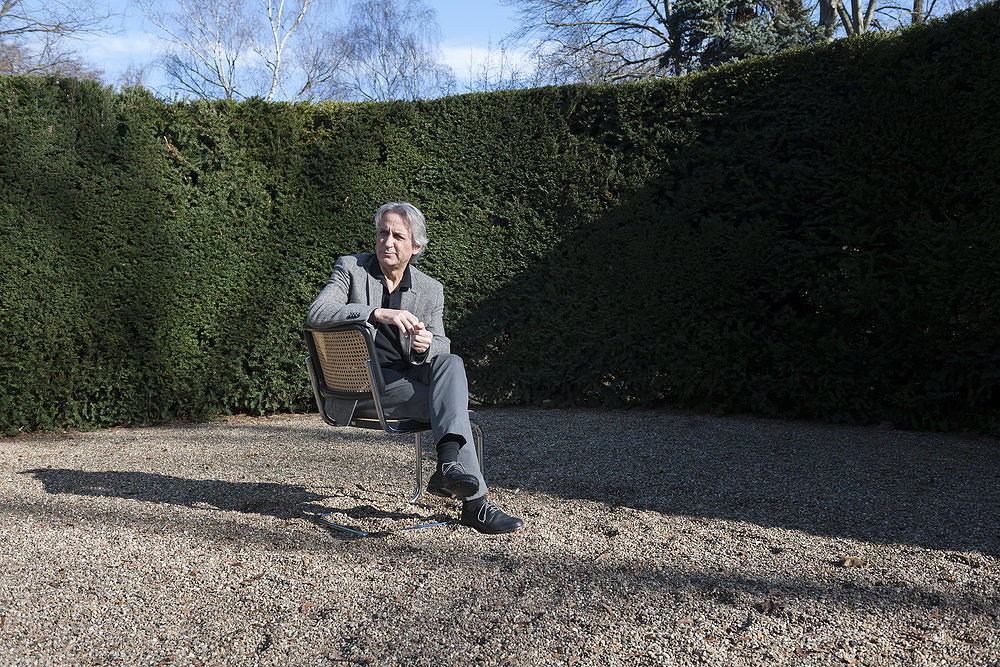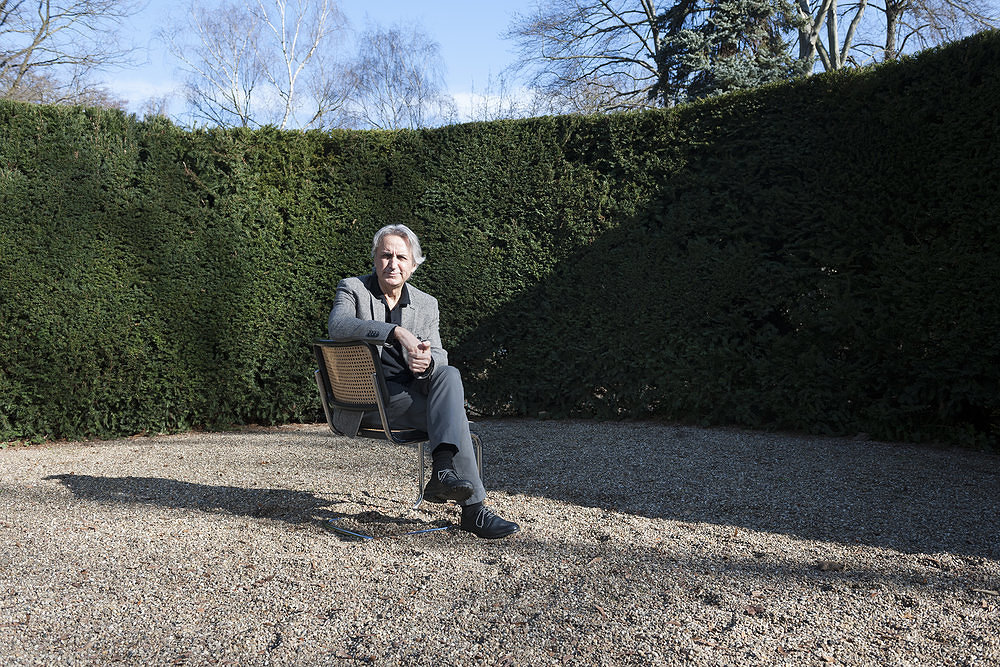Issue 12 / April 2017
“I see the potential for something good.”
Sonja Zekri
Sociologist Asef Bayat talks to journalist Sonja Zekri about his views on the Arab spring and his concept of post-Islamism
Asef Bayat experienced the first revolution in his homeland Iran when he was in his mid-twenties. He was born in 1954 and grew up in very humble circumstances in a village without a school. His parents were ethnic Turks and they spoke Turkish with him as a boy. Then came the move to Teheran some sixty kilometers distant, school and university studies in the Iranian capital, his first trip abroad to Great Britain, and return to Iran. It was then that Asef Bayat was swept up by the Islamic Revolution – and had found his topic. What share did those population segments who had nothing to do with the government, the opposition or the regime generally – the workers, the simple folk, the urban poor, the middle classes – have in the cataclysmic events? His doctoral dissertation investigated this question in the Iranian context, and three decades later during the revolts of the Arab Spring he explored it in the case of Tunisia, Yemen and above all Egypt. Asef Bayat had lived in the Egyptian capital for sixteen years, had taught sociology at the American University in Cairo, had married and started a family there. In January 2011, when the insurrection against long-time President Hosni Mubarak erupted, Bayat himself had just been at the University of Illinois as a professor of sociology and Middle Eastern Studies, but he immediately decamped for Cairo to observe the revolution first-hand. At the Wissenschaftskolleg zu Berlin he is putting his research down to produce the second book on the Arab Spring. The first book, Revolution without Revolutionaries: Making Sense of the Arab Spring, will be out in July. And so begins the conversation with Asef Bayat – in the run-up to the Arab Spring; and then moving from there into a discussion of the Islamist and – as Bayat terms it – post-Islamist currents in the region.
Sonja Zekri: Your Book Life as Politics: How Ordinary People Change the Middle East appeared in 2010, before the outbreak of the Arab insurrections. Did you have a premonition?
Asef Bayat: After start of the revolution, in fact, people who had read my book said to me: “In your book you described everything just as it happened.” So I went back and read it again. In the last years of the regime I did indeed have the impression that the dissatisfaction of people would lead to something big. The frustration and dissent were palpable, and I’m not speaking here of political parties or social movements but the neighborhoods, the various quarters, ordinary people who ran afoul of the police on a daily basis. Everywhere. I was convinced that sooner or later this would lead to conflicts. But the scale, the magnitude, the sheer speed with which the revolt grew – I could never have imagined that.
SZ: You call the revolt a revolution. Others speak of an insurrection, an insurgency, and they avoid using the historically loaded term “revolution.” Why do you characterize the events of the Arab Spring as a revolution?
AB: Well, I use the term “revolution” because the protagonists themselves use the same term (thawra, in Arabic). Otherwise, I have tried in my first book to discuss the nature of what happened in Tunisia, Egypt or Yemen not in terms of revolution, but “refo-lution”- a mix of revolution and reform. These were the revolutionary movements which emerged to compel the existing states or regimes to reform themselves. They never aimed to take over the governmental power, as we have seen in the 20th Century revolutions, like the Iranian or Cuban revolutions. And this can partially explain why little changed in the state institutions of the old order.
SZ: Very early on the phrase “Facebook Revolution” was coined and since then has proven very persistent. That is astonishing insofar as in Egypt during the rebellion the Internet and mobile communications were disrupted for days on end. Certain activists even welcomed this. They said wonderful! Now we can go door to door and get to know people on a personal basis. So, to describe the insurrection as a Facebook Revolution is actually erroneous?
AB: Yes, I am not in favor of describing the revolutions in the terms of “Facebook revolutions”. There was much more to the revolutions than simply communication through social media. In Egypt, but also Tunisia, society had become much more politicized in the ten years before outbreak of the rebellions, particularly younger people. People took to the streets even if they were only a handful at the beginning and surrounded by thousands of police in the public squares. Then emerged the movement “Kefaja” – “Enough!” – in Egypt which allowed for the people’s overwhelming frustration to be expressed. The country experienced large workers’ strikes, for instance in the textile center of Mahalla. In this particular historical situation the Internet and social media were important, for they lessened the price to be paid for political engagement. You could give vent to your dissatisfaction via the Internet without being peremptorily arrested. For Egyptian and Tunisian youths this was a great surprise – for the state and its security forces as well. Nobody in these regimes grasped the explosive potential in these media. They were taken completely off guard. But still digital mobilization was only one part of the nation-wide protests. Digital and the spatial or the street activism went hand in hand.
SZ: That surprise factor also applied to the street protests. When the people of Cairo congregated on 25 January, which since 2009 as of Mubarak’s decree happens to be National Police Day in Egypt, the police could have easily smashed the insurgency. Then there would never have been a Tahrir Square. But they didn’t do it. Was this a symptom of the old regime’s decadence?
AB: They underestimated the revolt – just as the protesters had. I’ve spoken with a great many individuals and they all say that they figured some five hundred people or so might appear for the demonstration. But then thousands turned up. There’s little doubt that young people began it spurred on by the social media. But nowhere in the world are young people able to attain a revolutionary breakthrough unassisted. They need ordinary people for that – their parents, uncles, siblings, elders. Young people can be dismissed and suppressed as a bunch of radicals, but when their mothers put in a showing then this is not as easily done. So to this extent it was a combination offline/online revolution. Young people who had an Internet presence spoke with, say, their uncle who lived in the ashwaiyyat, the poor illegal settlements, and who himself didn’t own a computer.
SZ: These ashwaiyyat, where the vast majority of Egyptians live, play a very large role in your investigations. Even though in many instances these are slum-like settlements, you perceive them as constituting centers of the Egyptian middle class. Is that not a contradiction in terms?
AB: The Egyptian case is so interesting because it has this “impoverished middle class”– people who are not members of the middle class from a socio-economic vantage point but are nevertheless educated and have middle-class dreams and a middle-class desire for consumer goods. These people are well aware of the possibilities that they are being denied. They have expectations and demands. Their parents may still have thought that this giant gap in prosperity was a God-given fact – but their children are enraged. The book I’m working on here in Berlin is concerned with just what the revolution signified for the everyday people--for the poor, women, and young people. I’m asking the question as to what exactly their contribution was and how it manifested in their lives.
SZ: Interestingly enough, for you the religious factor hardly plays any role at all. Why not?
AB: A secret of the success of the popular mobilization of early 2011 was the collaborative work between the liberal, leftist, and secular youth with religious activists including the Muslim Brotherhood. But the Islamist leadership initially hesitated, they didn’t want to risk anything. They had no plans to “Islamicize” the revolution.
SZ: What explains this hesitation? The Muslim Brotherhood must have been aware of their popularity at the time.
AB: They were typical reformists, they wanted power so as to change things gradually but not topple the system. They used the institutions, for example elections, fielding independent candidates. The system permitted them to have a share in it. The Muslim Brotherhood had no alternative future vision for Egypt except perhaps for implanting some Islamic codes. That showed itself very clearly when in 2012 they did in fact come to power with President Mursi. They had no alternatives to the Mubarak regime. Their ideologue Sayed Qutb had written about the social revolution but that was back in the 1950s and 1960s, and the Muslim Brothers had largely deviated from that vision. In the meantime the organization’s composition had changed. The ringleaders were mostly businessmen like the entrepreneur Khairat al-Shater. And they had no answer to those questions pertaining to a modern state or an alternative economic order. What would become of the banking industry, since Islam rejects the accumulation of interest as usury? What would become of tourism?
SZ: And yet the 2011 revolution brought the Muslim Brotherhood an unexampled accretion of power. From their ranks came the first Islamist president of Egypt – this seemed the harbinger of a triumphal procession of Islamists in the region. But just a year later everything had been smashed to bits. After mass demonstrations the military drove the Muslim Brotherhood from power. What was their mistake?
AB: They debarred too many others, they appeared on the scene like some exclusive club, as if there existed a nation of the Muslim Brotherhood, as if they would only be serving their own tribe. A different situation reigned in Tunisia – the Ennahda Party negotiated with the Liberals and created a coalition. Unlike the Muslim Brothers, Ennahda was by far more inclusive and committed to pluralism.
SZ: Why was the Ennahda Party acting so different, so much smarter?
AB: Because they aren’t Islamists but post-Islamists.
SZ: Post-Islamism is one of your core concepts and the theme of two of your books. What do you understand by this term – as opposed to Islamism?
AB: Islamism is an ideology that seeks to create a kind of Islamic order, especially a religious state on the basis of sharia. For Islamists an association with the state is all-important, they want to take control of the state, to Islamicize it. Post-Islamism, on the other hand, is a critique of this ideology. Its goal is to uncouple the state from Islam, it propagates a secular, non-religious state but still wants a religious society. Post-Islamists want people to fast, to pray, and conduct themselves morally in public; but they also want an independent justice system and secular political parties.
SZ: Who are the current representatives of this new direction?
AB: In the Arab world it would certainly be Tunisia. At its most recent party congress the Ennahda Party resolved that they would no longer be called Islamist but Islamic. They want a complete separation between religious and political activity. In the mosques they still pursue daawa – the proselytizing of Islam – but the state and its institutions, the administration of justice and the judges are secular. For a very long time the prototypical post-Islamist party was Turkey’s Justice and Development Party (AKP), the party of President Recep Tayyip Erdoğan. Ten years long they worked as a typically post-Islamist party, they evolved from earlier Islamist parties, and remained Islamic, but ruled over a secular state, even if the AKP propagated pious values. Now we will see how things further develop; the fact is that the AKP leader has moved steadily towards authoritarianism and intolerance, as the recent referendum showed.
SZ: How can the emergence of post-Islamist currents be explained?
AB: In countries with Islamist rule like Iran or Pakistan the transformation came about after tensions and dissatisfaction had become too great. Not only many secular citizens but many clerics and other devout people had their noses put out of joint because they had the impression that their religion was being instrumentalized. It was being mixed in with politics. So, there developed a vision to save Islam from Islamism, so to speak. But more than that, the Islamist ideologues changed course because they encountered powerful resistance from diverse segments of the people like globalizing youths, women, state employees and many intellectuals.
SZ: Many Salafists in Egypt said and continue to say that they won’t dirty their hands with politics.
AB: Yes. There are many kinds of Salafists and some demand that people live according to Islamic tenets in their personal lives but that this isn’t necessary when it comes to politics.
SZ: So there can be such a thing as a post-Islamist Salafist?
AB: This is what the French political scientist Olivier Roy calls “neofundamentalists”. But the question is how these non-political salafists would respond to pluralism and diverse life-styles of people who are not like them, including non-religious people or non-Muslims, for instance.
SZ: Still, at first glance it would appear that this is the way to reconcile Islam and democracy – is it?
AB: Yes I think it can potentially embody a form of democratic polity in which Muslim believers are key players. Post-Islamists accept free elections and an independent system of justice, they would regard people as rightful citizens rather than simply dutiful subjects. But there could be tensions along the way. Because desire to build a pious society may come to friction with personal liberties and diverse life styles. My co-Fellows Sa’diyya Shaikh and Michael Lambek have correctly pointed out to me that one’s piety may not necessarily impinge upon another person’s liberty; but the actual experiences of Iran, Turkey or Indonesia have shown that the expectation of public piety has in fact restrained certain life styles, expression of thought, and gender rights. For instance in Turkey, the AKP is propagating the notion that during Ramadan people, including non-Muslims should avoid eating in public.
SZ: In post-Islamism can a socially conservative and possibly repressive ideology be harmonized with modern political beliefs?
AB: If by modern political beliefs we mean modern democratic polity, then a repressive ideology would by definition clash with it. But social conservatives can be part of a democratic polity which respects pluralism and inclusivism. For instance, there was a big difference between the Iran of President Mohamed Khatami and the Iranian society of President Mahmoud Ahmadinejad. During the Khatami rule the government was relatively more tolerant, more pluralistic, more vibrant and women were more active. But there remained restrictions such as the headscarf along with strictures on intellectual debate. A post-Islamic democracy is possibly an illiberal democracy. But there is an opportunity here for the emergence of spaces where such questions can be discussed, questions like how much freedom should there be? The global history of democracy shows that also in the West, developments were no different. There were free elections and democracy long before same-sex marriage, and it was decades before women achieved equal rights. Even in a post-Islamist society the conservatives could push their program through. In the West the conservative populists are triumphing through democratic means. Democracy is risky. Progressives may lose. But I see the potential for something good to emerge.
More on: Asef Bayat
Images: © Maurice Weiss



